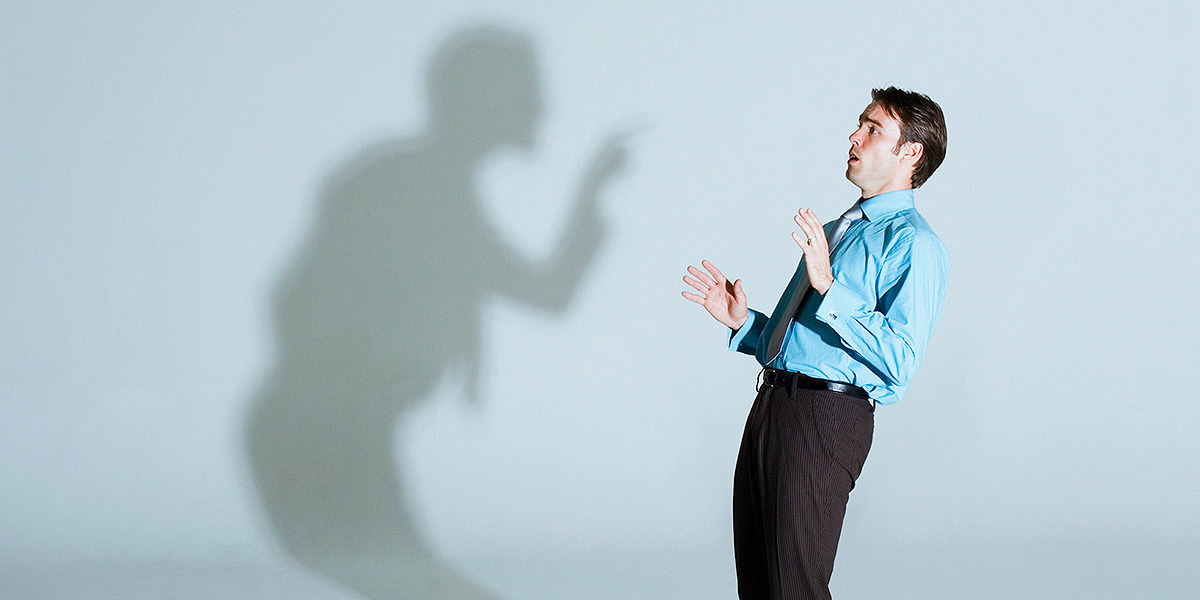Causes of Afraid Dreams
The Role of Stress and Anxiety
Afraid dreams are a common phenomenon that can leave individuals feeling uneasy, anxious, or even frightened upon waking. The causes of afraid dreams can be diverse and complex, involving various psychological, emotional, and physical factors. Understanding the underlying reasons for these nightmares is essential to address them effectively.
Stress and anxiety are two primary culprits behind afraid dreams. When an individual experiences chronic stress or anxiety, their brain’s threat response system is triggered, leading to a heightened state of alertness. This can manifest in the form of vivid and disturbing dreams that leave the person feeling shaken or frightened.
One reason why stress and anxiety contribute to afraid dreams is due to the release of hormones such as adrenaline (also known as epinephrine) and cortisol during times of high tension. These hormones stimulate the brain’s amygdala, which processes emotions like fear and anxiety, causing vivid and intense dream images.
Another reason for the connection between stress and afraid dreams is related to the concept of emotional processing. When an individual experiences a stressful event or situation, their brain tries to make sense of it by replaying the experience in a symbolic format – i.e., through dreams. Afraid dreams can serve as a way for the mind to process and cope with unresolved emotions, allowing the person to work through their anxiety and stress.
The role of anxiety in afraid dreams is particularly significant. Anxiety can trigger nightmares due to its association with fear and apprehension. When an individual has high levels of anxiety, they are more likely to have anxious or fearful thoughts during the day, which can then bleed into their dreams at night. Furthermore, research suggests that anxiety disorders like generalized anxiety disorder (GAD) and panic disorder (PD) are associated with a higher frequency of nightmares.
Stress and anxiety can also contribute to afraid dreams by triggering the body’s ‘fight or flight’ response. This response is characterized by an increase in heart rate, blood pressure, and respiration rates, as well as an accelerated release of stress hormones like adrenaline and cortisol. When this response occurs during sleep, it can lead to intense and disturbing dream images that may leave the person feeling scared or disoriented.
Interestingly, the brain’s default mode network (DMN), which is responsible for introspection, self-reflection, and mind-wandering, also plays a significant role in afraid dreams. Research suggests that the DMN can become overactive during times of stress and anxiety, leading to a higher frequency of nightmares and vivid dream images.
Overall, the causes of afraid dreams are complex and multifaceted, involving various psychological, emotional, and physical factors. While stress and anxiety are significant contributors, other factors such as unresolved emotions, fear, and anxiety disorders also play a role in triggering these nightmares. Understanding these underlying reasons is essential to develop effective strategies for addressing and overcoming afraid dreams.
Stress and anxiety are common causes of afraid dreams, according to research by the National Sleep Foundation (NSF). When we’re under stress or anxious, our brain processes these emotions while we’re sleeping, leading to vivid and often unsettling dreams. This can be especially true for people who experience recurring stressors in their waking lives.
Afraid dreams can be quite distressing and leave a lasting impression on one’s mind. Research suggests that stress and anxiety are common causes of afraid dreams, as revealed by the National Sleep Foundation (NSF). This phenomenon occurs when our brain processes these emotions while we’re sleeping, resulting in vivid and often unsettling dreams.
When we experience stress or anxiety in our waking lives, it can significantly impact our sleep patterns. Our brain continues to process these emotions even when we’re asleep, leading to the manifestation of afraid dreams. This is especially true for individuals who encounter recurring stressors in their daily lives. The constant exposure to stressful situations can cause our brain to go into overdrive, leading to anxious and fearful thoughts that manifest as afraid dreams.
The brain’s ability to process emotions during sleep is a complex process that involves the activation of different brain regions. During REM sleep, the brain’s default mode network (DMN) is active, which enables it to consolidate emotional experiences and memories. When we’re under stress or anxious, our DMN can become overactive, leading to the formation of afraid dreams.
Stress and anxiety can also contribute to the development of afraid dreams by affecting the body’s physiological response to threats. When we’re stressed or anxious, our body’s fight-or-flight response is triggered, releasing stress hormones such as adrenaline and cortisol. These hormones can interfere with normal sleep patterns, leading to vivid and disturbing dreams.
It’s essential to note that afraid dreams can have different meanings depending on the context of the dream and the individual’s personal experiences. While stress and anxiety are common causes of afraid dreams, other factors such as underlying mental health conditions or unresolved emotional issues may also contribute to their occurrence.
In conclusion, stressed and anxious individuals are more likely to experience afraid dreams due to the brain’s processing of these emotions during sleep. Understanding the causes of afraid dreams can help individuals identify potential stressors and work towards managing their anxiety levels, leading to improved sleep quality and overall well-being.
Unresolved Fears and Phobias
The causes of afraid dreams can be attributed to various factors, including unresolved fears and phobias. These emotions can stem from past experiences or traumatic events that have left a lasting impact on an individual’s psyche.
When we experience fear, our brain processes it as a potential threat, triggering the release of stress hormones such as adrenaline and cortisol. These hormones prepare our body for fight or flight mode, preparing us to respond to the perceived danger. However, when this fear is not properly processed or resolved, it can manifest in our dreams as a recurring theme.
Unresolved fears and phobias can be triggered by various factors, including past traumas, childhood experiences, or social pressures. For instance, if someone had a frightening experience as a child, they may develop an irrational fear, such as a fear of spiders or enclosed spaces.
Another cause of afraid dreams is the accumulation of stress and anxiety in daily life. When we are under constant pressure to perform, meet deadlines, or navigate challenging relationships, our brain can become overwhelmed, leading to increased anxiety levels.
This anxiety can manifest in our dreams as a sense of feeling trapped or helpless, which can be accompanied by a range of emotions including fear, anger, and frustration. In some cases, afraid dreams may also be triggered by changes in sleep patterns, sleep deprivation, or other external factors that disrupt our normal sleep-wake cycle.
It’s worth noting that afraid dreams can serve as a reflection of our inner world, revealing unresolved conflicts, unconscious fears, or suppressed emotions. By exploring the content and symbolism in these dreams, we may uncover hidden areas of ourselves that need attention and healing.
In this context, afraid dreams can be seen as an opportunity for personal growth and self-awareness, allowing us to confront and resolve our unresolved fears and phobias, leading to greater emotional balance and well-being in waking life.
Afraid dreams can also stem from unresolved fears and phobias. According to a study published by the Journal of Abnormal Psychology, people with anxiety disorders often have more intense and disturbing dreams. This is because their brain struggles to process and consolidate memories related to these fears.
Afraid dreams can be a reflection of unresolved fears and phobias that individuals have, causing them distress and anxiety. According to a study published by the Journal of Abnormal Psychology, people with anxiety disorders often have more intense and disturbing dreams.
This is because their brain struggles to process and consolidate memories related to these fears. The brain’s attempt to make sense of these traumatic experiences can lead to the formation of vivid and frightening dreams. These dreams can be a manifestation of the subconscious mind’s attempt to deal with unresolved emotions and concerns.
Unresolved fears can also stem from past traumas, such as physical or emotional abuse. The brain’s response to these traumatic experiences can lead to the development of anxiety disorders and the occurrence of afraid dreams. These fears can be so deep-seated that they are not even conscious to the individual, making it difficult for them to understand why they have recurring nightmares.
In addition to unresolved fears, other factors can contribute to the occurrence of afraid dreams, such as stress and uncertainty. These factors can disrupt the normal functioning of the brain’s sleep-wake cycle, leading to an increase in the frequency and intensity of dreams. When combined with pre-existing anxiety disorders, these factors can lead to more disturbing and vivid dreams.
It is essential to address unresolved fears and phobias to prevent their manifestation in afraid dreams. Cognitive-behavioral therapy (CBT) has been shown to be an effective treatment for anxiety disorders, reducing the occurrence of feared situations and events in reality and in dreams.
Moreover, other treatments such as meditation and relaxation techniques, can help reduce stress levels and promote a sense of calmness, which can lead to more positive and less disturbing dreams. By addressing unresolved fears and phobias, individuals can take the first step towards reducing the occurrence of afraid dreams and improving their overall mental health.
It is essential for individuals experiencing recurring afraid dreams to seek professional help from a licensed therapist or counselor. A trained professional can help identify the underlying causes of these nightmares and develop effective strategies to overcome them.
By working together with a healthcare provider, individuals can find the best course of treatment to manage their anxiety disorders and reduce the occurrence of afraid dreams.
Interpretation of Afraid Dreams
What Does Being Afraid in a Dream Mean?
Afraid dreams can be unsettling and often leave a lasting impression long after waking up. When you dream that you are afraid, it may not necessarily mean that something is wrong in your waking life, but rather that your subconscious mind is processing emotions or experiences.
There are various possible reasons why you might be experiencing afraid dreams, including unresolved issues from the past, anxiety about the future, or simply a reaction to stress and pressure. It’s essential to consider the context of the dream to understand its underlying message.
In general, being afraid in a dream can be symbolic of fear of change, uncertainty, or loss of control. Your subconscious mind may be warning you about potential dangers or threats that need to be addressed.
Some common causes of afraid dreams include:
- Ancillary fears: These are usually linked to unresolved issues from the past, such as childhood traumas or previous experiences that still linger in your subconscious.
- Current anxieties: These could be related to stress at work, relationship problems, or other everyday concerns. Your mind may be processing these emotions and expressing them through your dreams.
- Fear of the unknown: This can manifest as a fear of change, a new situation, or an uncertain future. Your subconscious mind might be warning you about potential dangers or threats.
- Loss of control: Being afraid in a dream can also indicate a sense of powerlessness or lack of control over your life. You may feel overwhelmed by circumstances beyond your control.
To better understand what being afraid in a dream means, consider the following:
- Emotional state: Take note of how you were feeling during the dream. Were you experiencing anxiety, panic, or fear?
- Triggering event: What was happening in the dream that caused your fear? Was it a specific object, person, or situation?
- Personal associations: Think about what this event, object, or person might symbolize in your life. Is there something you need to confront or address?
By analyzing your afraid dreams and reflecting on their underlying meaning, you can gain a deeper understanding of your subconscious mind and its attempt to communicate with you.
Being afraid in a dream can symbolize a range of emotions and experiences, from fear of failure or rejection to anxiety about the future. According to psychologist Sigmund Freud, dreams about being afraid often represent unresolved conflicts or unconscious fears that we’re not aware of.
Afraid dreams are a common phenomenon that can leave us feeling unsettled and unsure about what they mean. However, understanding the possible interpretations behind these dreams can provide valuable insights into our subconscious thoughts and emotions.
According to Sigmund Freud, dreams about being afraid often represent unresolved conflicts or unconscious fears that we’re not aware of. This theory suggests that our dreams are a way of processing and dealing with our repressed emotions and experiences.
Here are some possible interpretations of afraid dreams:
- Fear of failure or rejection: If you dream about being afraid, it may indicate that you’re worried about failing at something or fearing rejection by others. This could be related to a specific situation in your waking life, such as a job interview or a social gathering.
- Anxiety about the future: Afraid dreams can also symbolize anxiety and uncertainty about what’s to come. You may be worrying about potential threats or challenges that lie ahead, such as financial problems or health issues.
- Loss of control or feeling overwhelmed: In some cases, being afraid in a dream can represent feelings of powerlessness or being overwhelmed by circumstances. This could be related to feeling stuck in a situation or struggling with emotions like anxiety or depression.
It’s worth noting that dreams are highly personal and can have multiple meanings depending on the individual and their experiences. If you’re interested in understanding what your afraid dream may mean, consider keeping a dream journal to track your dreams and identify recurring themes and symbols.
In addition to keeping a dream journal, there are several other strategies you can use to better understand your afraid dreams:
- Reflect on the emotions and sensations in your dream: Try to recall how you felt during the dream, including any physical sensations or emotions that arose.
- Identify potential triggers: Think about what may have triggered the afraid dream, such as a recent event or stressor.
- Consider the symbolism in your dream: Look for symbols or images in your dream that may hold specific meanings or significance.
By exploring these factors and keeping an open mind, you can gain a deeper understanding of what your afraid dreams may be trying to tell you.
What to Do with Afraid Dreams
Coping Mechanisms for Afraid Dreamers
The presence of afraid dreams can be unsettling and affect a person’s mental well-being. To address this issue, it is essential to understand what such dreams signify and how they can be managed.
Understanding Afraid Dreams:
Afraid dreams are often associated with anxiety, stress, or unresolved emotional issues in waking life. These dreams can manifest as nightmares, where the individual experiences a sense of intense fear or terror. They can also appear in a more subtle form, such as a dream where you feel anxious or uneasy.
Coping Mechanisms:
Here are some strategies to help manage afraid dreams:
Journaling and Reflecting
This involves writing down your dreams, no matter how insignificant they may seem. Reflect on the emotions you experienced during the dream and try to understand what triggered them. This process can help identify recurring themes and patterns that might be related to your waking life.
Practicing Relaxation Techniques
Engage in activities that promote relaxation, such as deep breathing exercises, progressive muscle relaxation, or meditation. These techniques can aid in calming the mind and reducing stress levels, making it easier to manage afraid dreams.
Identifying Triggers and Addressing Underlying Issues
Try to pinpoint specific events or emotions that trigger your afraid dreams. Once you’ve identified these triggers, focus on addressing the underlying issues in your waking life. This can involve seeking support from friends, family members, or mental health professionals.
Fostering a Positive Sleep Environment
Ensure that your sleep environment is conducive to relaxation and calmness. This might involve creating a cozy sleeping space, using calming colors or scents in your bedroom, or avoiding screens before bedtime.
Prioritizing Self-Care and Exercise
Adequate self-care and regular physical activity can significantly reduce stress levels and promote better sleep quality. Engage in activities that bring you joy and help manage stress, such as yoga or walking.
Remember that managing afraid dreams requires patience, understanding, and a willingness to address the underlying emotional issues. By employing these coping mechanisms and seeking support when needed, you can work towards a more peaceful and restful night’s sleep.
If you experience recurring afraid dreams, consider keeping a dream journal to track your emotions and identify potential triggers. Additionally, practicing relaxation techniques like deep breathing or meditation can help reduce stress and anxiety in both waking life and during sleep.
Afraid dreams can be unsettling and leave a lasting impact on one’s emotional state. If you’re experiencing recurring afraid dreams, it may be helpful to establish a dream journaling routine. This involves keeping a record of your dreams, including the emotions you experienced during and after waking up from each nightmare.
By tracking your dreams in this way, you can identify potential triggers or common themes that contribute to your afraid dreams. For instance, you may notice that you have more nightmares on days when you’re feeling stressed or overwhelmed, suggesting that anxiety is a contributing factor. Similarly, if you find yourself having similar nightmares repeatedly, it could be indicative of unresolved issues in your waking life.
Another approach to managing afraid dreams is through relaxation techniques. Regular practice can help reduce stress and anxiety in both your waking hours and during sleep. Techniques such as deep breathing exercises or guided meditation can calm the mind and body before sleep, making it less likely for you to enter into a state of heightened fear.
Deep breathing involves focusing on slow breaths, typically through the nose and out of the mouth, with an emphasis on relaxation rather than shallow chest breathing. This technique can be practiced at any time but is particularly beneficial as part of your bedtime routine to signal the body that it’s time to relax.
Meditation practices, whether guided or not, can also significantly reduce stress levels and anxiety associated with nightmares. Regular meditation practice can lead to an increase in positive emotions like calmness, reducing the occurrence of afraid dreams. Guided imagery or meditation can be a powerful tool for reprogramming your subconscious mind to create more peaceful sleep experiences.
Consider exploring other relaxation techniques such as progressive muscle relaxation (PMR), mindfulness, and yoga to help manage fear responses during your day-to-day life. These practices may indirectly impact the frequency of afraid dreams by fostering a greater sense of calmness and control over anxiety.
It’s also worth noting that facing your fears in waking life can be an effective approach to addressing recurring afraid dreams. By confronting and overcoming real-life anxieties or phobias, you may find that your nightmares become less frequent. This approach requires courage but can lead to a reduction in overall stress levels.
Lastly, consider reaching out to a mental health professional for guidance on managing your feared dreams. They can help identify the underlying causes and provide personalized strategies tailored to address these specific fears.
When we experience afraid dreams, it’s essential to understand that our subconscious mind is trying to communicate with us. These dreams can be unsettling and even disturbing, but they also hold valuable information about our waking lives.
The first step in dealing with afraid dreams is to acknowledge them and not suppress them. Try to recall as much detail as possible about the dream, including your emotions and sensations during the experience.
Once you’ve acknowledged your afraid dream, consider what could be causing it. Are you feeling anxious or fearful about a specific situation in your waking life? Or is there something deeper that’s driving these feelings?
Identifying the root cause of your afraid dream can help you address the underlying issue and work towards resolving it. This may involve seeking support from friends, family, or a mental health professional.
Here are some possible reasons why we have afraid dreams:
- Fear of failure: Are you worried about not meeting expectations in your personal or professional life?
- Loss of control: Do you feel like events are spiraling out of control, and you’re powerless to stop them?
- Uncertainty: Are you unsure about the future or uncertain about making decisions?
- Past traumas: Have you experienced a traumatic event in your past that’s causing recurring afraid dreams?
In addition to identifying the root cause, it’s also essential to learn how to manage and cope with feared emotions during the day. This can be achieved through various techniques such as:
- Mindfulness meditation: Focus on being present in the moment and letting go of worries about the past or future.
- Deep breathing exercises: Practice slow, deep breaths to calm your nervous system and reduce anxiety.
- Physical activity: Engage in regular exercise or physical activities that help release endorphins and improve mood.
Lastly, consider the following tips for overcoming afraid dreams:
- Keep a dream journal to track recurring themes and emotions.
- Practice self-compassion and acknowledge your fears without judgment.
- Seek professional help if your afraid dreams are persistent or severe.
By understanding the underlying causes of your afraid dream, addressing them, and learning to cope with feared emotions during the day, you can work towards overcoming these recurring nightmares and developing a more positive outlook on life.
- Baptism Dream Meaning: What Does Baptism Mean In Your Dream? - September 16, 2024
- Bumper Dream Meaning: What Does A Bumper Symbolize In Your Dream? - September 15, 2024
- Banana Dream Meaning: What Does A Banana Mean In Your Dream? - September 15, 2024







